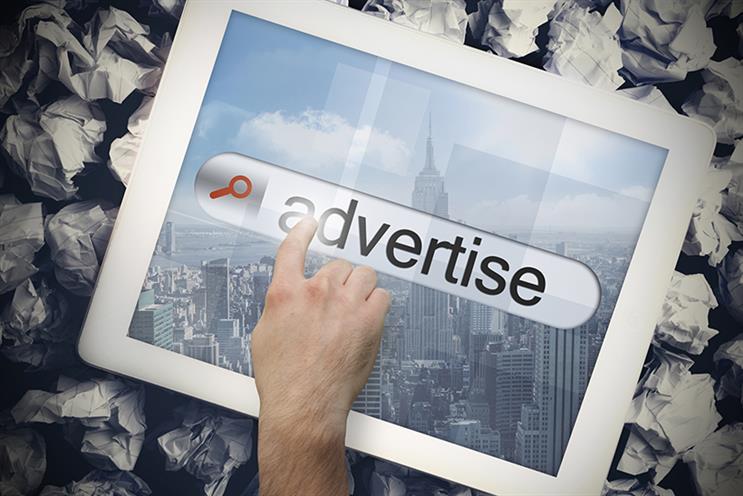This week’s topic that marketers think they should be talking about is the demise of the cookie, which is in the news thanks to the announcement from Google Chrome earlier this month, putting a two-year time limit on the technology in the name of user privacy.
Most generalist marketers will only be following the topic vaguely, perhaps reading the headlines and thinking it must be a big deal, but without much understanding of why.
I am reminded of a scene in the movie Bridget Jones’s Diary, when, ahead of a work party where she is trying to impress, Bridget decides that the best way to appear clever would be to ask people "what do you think of the situation in Chechnya?". Clearly, Bridget herself knows very little, and can barely pronounce it, elongating the last syllable and repeatedly practising "Chechnyaaaa" to herself in the mirror as she gets ready.
You see, while ad tech folk have been talking about the demise of the cookie for years, it’s not really been news in mainstream marketing commentary. But I’ve had more conversations about it in the past two weeks than the previous two years.
My first thought is: good riddance to the third-party cookie. Nothing has done more to fuck up marketing effectiveness than the third-party cookie. Among all the hand wringing of why marketing effectiveness is in decline, and the "crisis of creativity" in this industry, the third-party cookie must take a big share of the blame.
It’s totally got us hooked on the crack of immediate short-term performance at the cost of long-term brand building. It’s had us valuing the things we can measure over the things we can’t. And it’s had us focus on ever-decreasing pools of audiences in the name of efficiency and reducing wastage.
So the demise of the cookie and a reduced ability to target audiences will be a good thing. We’ll have to return to context-based media buying; seeking out environments where our (broader) target audiences congregate.
We’ll be able to leverage quality, first-party data rather than paying for dodgy third-party data of questionable origin, and even more questionable effectiveness. Hell, maybe it will make advertisers and agencies start to think about their audiences as people again, not segments, or cookie pools.
Don’t confuse my point with me being anti-digital. Far from it. Most of what we plan and buy for our clients is digital media. But it’s the way the industry has been using digital that is the problem. The over-reliance on bottom funnel. Placements that simply cannot effectively communicate the brand’s message. Cluttered environments, with poor quality editorial, or where the ad only plays with the sound off for a couple of seconds, or is only 50% in view.
Thanks to the cookie, these placements have been massively overvalued. So now perhaps without the cookie data to fall back on, planners will get back to planning with human beings in mind.
Except that, hang on, what does this post-cookie world look like? Let’s look into the crystal ball. The walled gardens of Facebook and Google will be fine. In fact, with both cookieless audience targeting and last-click attribution sewn up, they will probably take an even greater claim of the credit and even more share of client budgets.
Some publishers may benefit from a return to context, or will be ok as they already have lots of first-party data on their users, but a generation of marketers will still be looking for last-click performance across the media plan. Habits will be hard to break.
Gradually the ads you see from one site to the next will become less personalised. Publishers may resort to increasing ad loads to maintain revenues. You might even see the return of the dreaded popunders as response marketing will become a low CPM, high volume game again. And remember, consumers don’t hate ads – they just hate bad, irrelevant ads.
So with an increase in irrelevant ads, expect an increase in ad blockers, further damaging the coffers of anyone who makes their income from advertising (though not including Google and Facebook, of course).
Sounds rather bleak doesn’t it? There is hope of course. Google’s outlined "privacy sandbox" could yet provide a model for tracking users, while respecting privacy, and maintaining a "healthy, ad-supported web", as its press release said. And alternative coalitions could yet form, as other publishers join forces to find a way to deliver targeted ad experiences across sites in cookieless, opt-in ways.
After all, buyers are keen to maximise reach and control frequency across the entire plan – just as audiences don’t want to be followed around the web by the same ad.
So, there will no doubt be many more articles about this over the months and years to come. It is a big deal, and my personal hope (as a web user, as much as a media planner) is that it results in an uptick in human-centred, effective media planning, that delivers better, longer-term growth for brands. My fear is that the walled gardens get stronger, and the ad revenues for quality content publishers are further challenged.
Anyway, that’s what I would say if you asked me, like Bridget Jones making conversation at a party, "what do you think of the death of the cookie?".
But having said that, I envy people who can respond to that question just like Bridget’s love interest does (played by Hugh Grant in full lothario mode), when asked about the situation in "Chechnyaaa".
He frowns at her from across the table and simply says: "I couldn’t give a fuck, Jones."
Ed Cox is founder at Yonder Media


